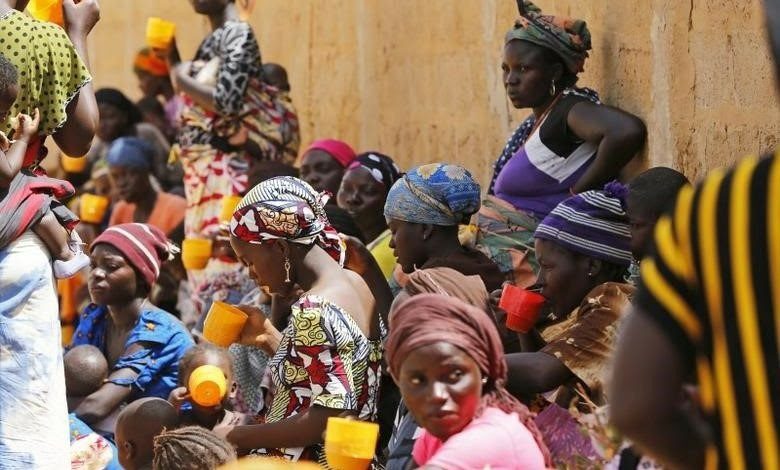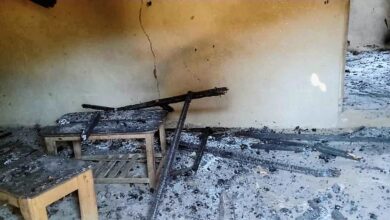IDPs In Northeast Face Hunger As Food Rations Are Cut By 60 Percent
More displaced persons in Borno State, Northeast Nigeria are facing food insecurity with food rations being lowered as famine and insecurity affect supplies.

Food rations in Internally Displaced Persons (IDPs) camps in Borno State, Northeast Nigeria have been cut by almost 60 per cent, HumAngle has learnt.
According to a HumAngle source, food has become increasingly scarce for the displaced persons in camps across the state, with agencies responsible for providing food, the State Emergency Management Agency (SEMA), and the National Emergency Management Agency (NEMA), drastically reducing the amount of food provided.
The insurgency plaguing the Northeast region over the past decade persists, making humanitarian aid even more hard to provide for the most vulnerable populations.
According to the Africa Centre for Strategic Studies of the US Defense Department, the Lake Chad region had seen a 60 per cent increase in violence over the past year.
The United Nations (UN) last year foretold the region’s famine risk due to the high levels of food insecurity.
According to the organisation, 5.1 million people were at risk of hunger in the coming lean season, the highest figure in four years.
“In Nigeria, over 800,000 children are expected to suffer from acute malnutrition, including nearly 300,000 of severe acute malnutrition, at imminent risk of death. The situation is particularly alarming in the country’s northeast region, which suffers from Boko Haram violence,” the UN added.
Aid workers responding to the crisis in the region have explained that they were limited by what they can do, as the insurgents continue to gain ground.
“Almost no one is operating at full capacity,” an aid worker told AFP.
Other limitations include the targeting of aid workers by the insurgents, kidnappings, and attacks on their bases.
In March, an attack was launched on a humanitarian hub in Dikwa, forcing the UN to evacuate aid workers from their hubs in Monguno and Ngala due to the two towns’ proximity to Dikwa.
Support Our Journalism
There are millions of ordinary people affected by conflict in Africa whose stories are missing in the mainstream media. HumAngle is determined to tell those challenging and under-reported stories, hoping that the people impacted by these conflicts will find the safety and security they deserve.
To ensure that we continue to provide public service coverage, we have a small favour to ask you. We want you to be part of our journalistic endeavour by contributing a token to us.
Your donation will further promote a robust, free, and independent media.
Donate Here




